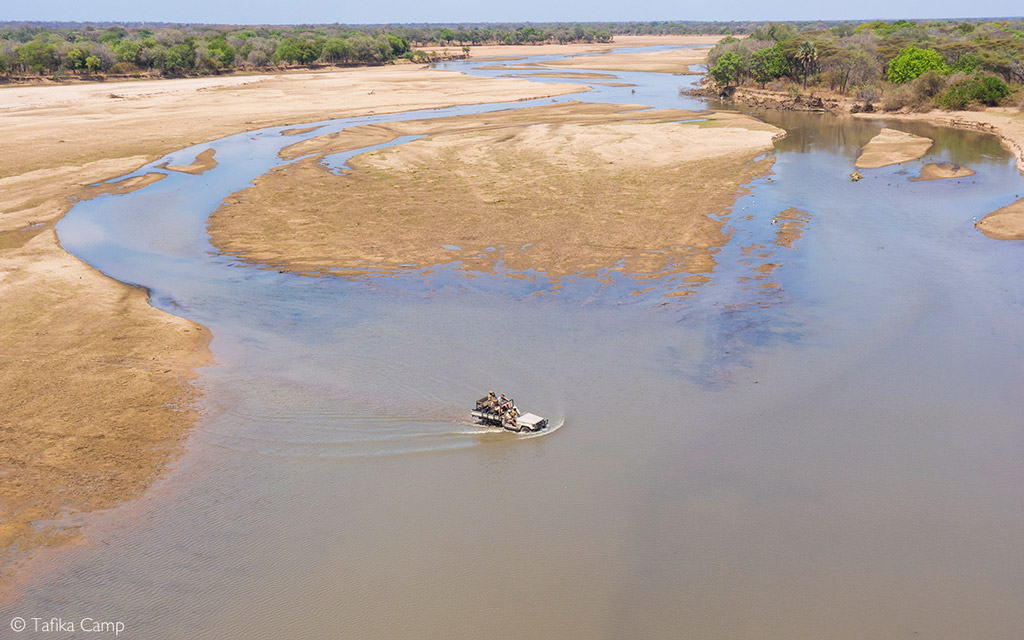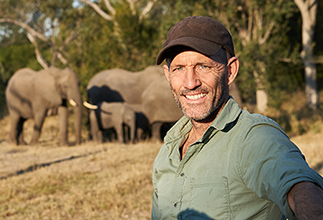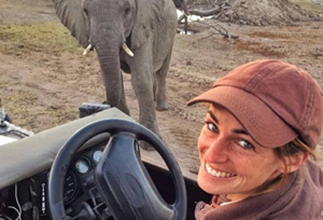
This is a copy of our weekly email newsletter. Subscribe here to receive the newsletter.
From our Editor-in-Chief

Late one August afternoon, I was watching a leopard draped over a marula limb. Around me in the clearing, the remaining grass turned a mixture of gold and red as the sun nestled behind the Drakensberg. It was warm and peaceful. Then, faintly on the north-west breeze, came a sound not normally associated with safaris in beautiful game reserves – cowbells. ‘Tink tink tink,’ they went in the distance as the herd of cattle belonging to someone in Dixie village outside the Sabi-Sands Game Reserve, drove his livestock home. Many might be aggrieved by this human invasion into the atmosphere of the wilderness. Personally, I found the gentle tinkling to be a calming herald of another day’s closing in rural Africa.
Cattle and other livestock are culturally and economically crucial to many rural Africans. Yet many people see livestock as anathema to wildlife conservation and healthy rangelands. Is there a balance? All around the African continent, conservationists are working to ease the tensions where protected areas and rural people meet.
I would urge you to read our second story below to learn how some brilliant people are integrating traditional livestock husbandry with conservation objectives for the benefit of people, livestock and wildlife. Herding 4 Health is a profoundly important Peace Parks Foundation initiative.
In our first story below, we travel to the Lewa Wildlife Conservancy and surrounds in Kenya. Here is an exclusive wilderness playground in the shadow of Mount Kenya. It was once a cattle farm, then a rhino sanctuary, and now it is one of East Africa’s premier safari destinations.
As we head into the hottest part of the year, it’s only appropriate that we consider the effects of heat on our fellow creatures – especially as we, seemingly inexorably, make things warmer for them. Our third story below discusses how a sunbird’s dazzling colours make life tricky under the African sun.

From our Scientific Editor

One of my favourite things about this time of year is the return of the woodland kingfishers, (usually) marking the return of the rains and the rejuvenation of the bushveld. I sat and watched a pair trilling to each other on the tree outside my bedroom and marvelled at the way their feathers changed colour in the dappled sunlight.
Bird feathers are one of nature’s captivating works of art. Whether the subtle, earthy tones of a ground-dwelling francolin or the flash of red of a turaco streaking through the forest, these intricate structures are marvels of engineering. This is especially true of iridescent feathers, which use light refraction to transform a drab-looking feather into a shimmering masterpiece. Even a homely city-dwelling pigeon can find itself with a flashy collar in the right light. And the tiny sunbirds that zip from aloe to aloe? They become little glimmering gems.
However, new science suggests that this extravagant display may well come at a cost for sunbirds—one which will be become even more pronounced as our planet warms. Read our third story to find out more.

Story 1
https://africageographic.com/stories/lewa-wildlife-conservancy/
LEWA
Lewa Wildlife Conservancy, Kenya – a haven for rare and wonderful wildlife and stunning safari experiences
Story 2
https://africageographic.com/stories/herding-4-health/
HERDING 4 HEALTH
Herding 4 Health is an exciting conservation initiative that integrates traditional livestock herding and wildlife conservation
Story 3
https://africageographic.com/stories/sunbird-feathers-and-the-sweltering-cost-of-beauty/
OVERHEATING SUNBIRDS
Gorgeous iridescent sunbird feathers play an essential role in visual communication but could dangerously increase heat absorption.
 TRAVEL DESK UPDATES:
TRAVEL DESK UPDATES:
• Here we go again, as UK bans flights from 6 African countries. The United Kingdom has temporarily suspended flights from South Africa, Namibia, Zimbabwe, Botswana, Lesotho and Eswatini due to the emergence of a new Covid-19 variant. Anyone who has been in these countries in the previous ten days has been banned from entering the UK. UK and Irish nationals who can make it back to the UK will have to quarantine in hotels from Monday. Read more here.
 DID YOU KNOW: The kingfisher’s beak design is so aerodynamic that its design has been used for the front of Japanese bullet trains
DID YOU KNOW: The kingfisher’s beak design is so aerodynamic that its design has been used for the front of Japanese bullet trains
To comment on this story: Login (or sign up) to our app here - it's a troll-free safe place 🙂.![]()







